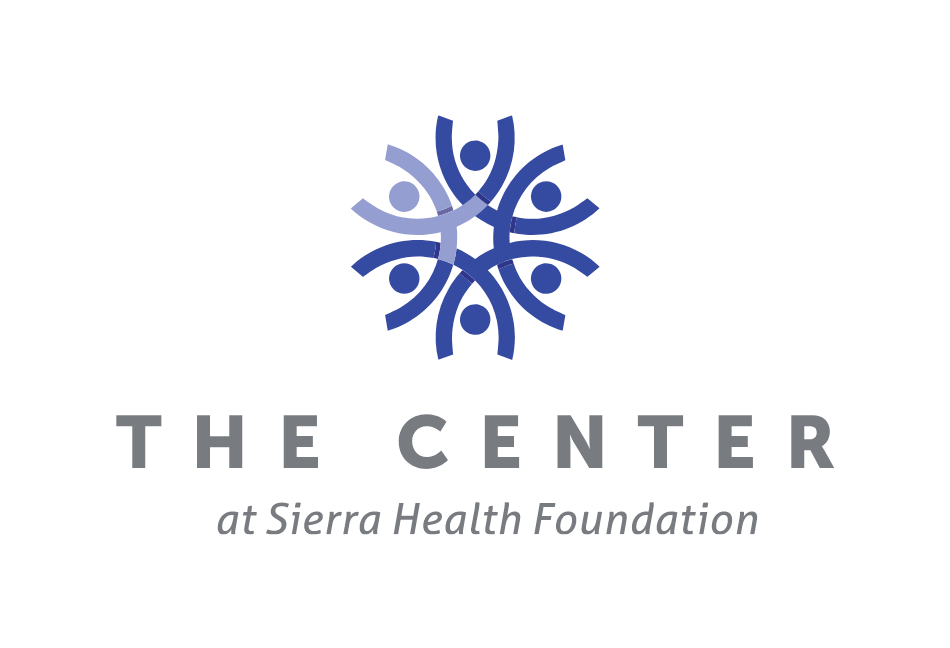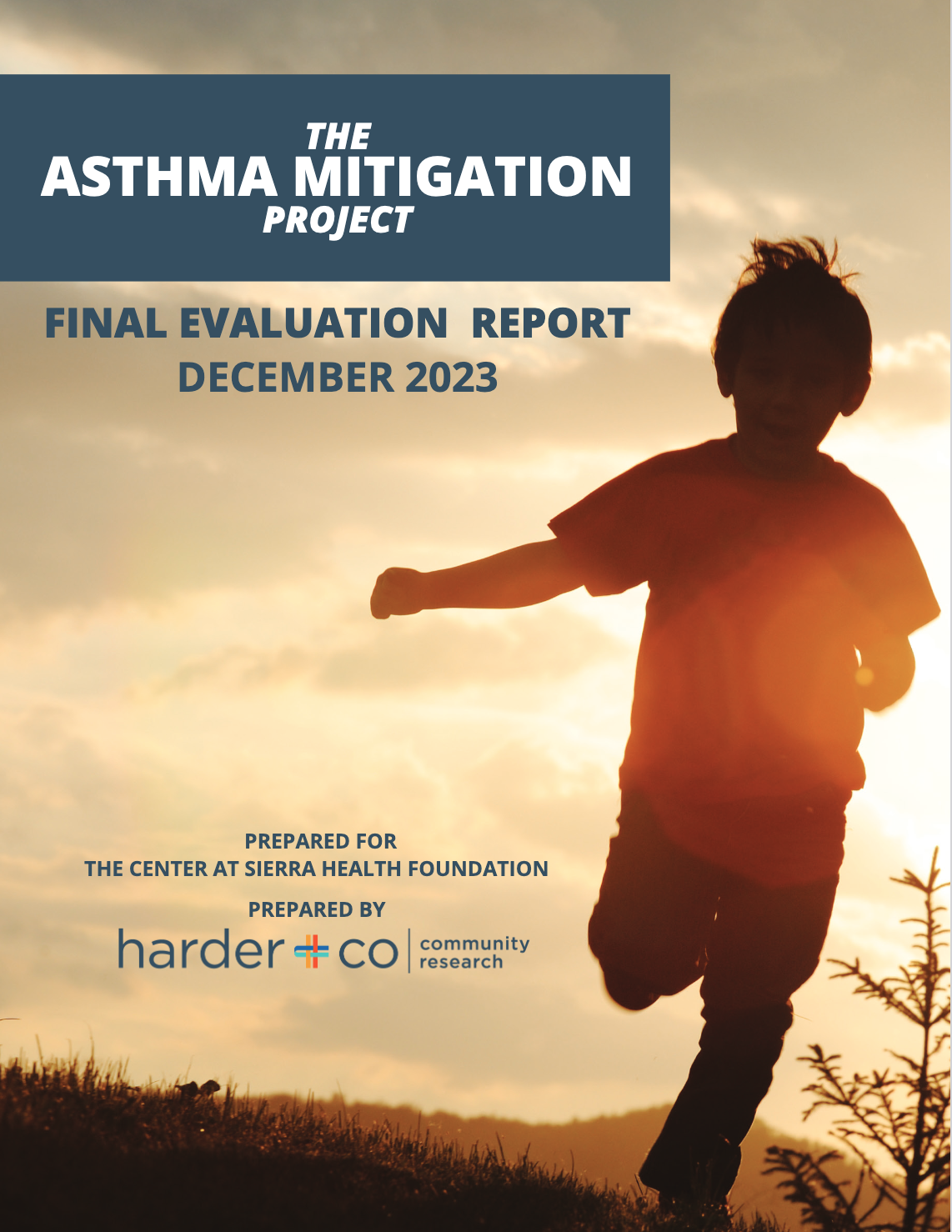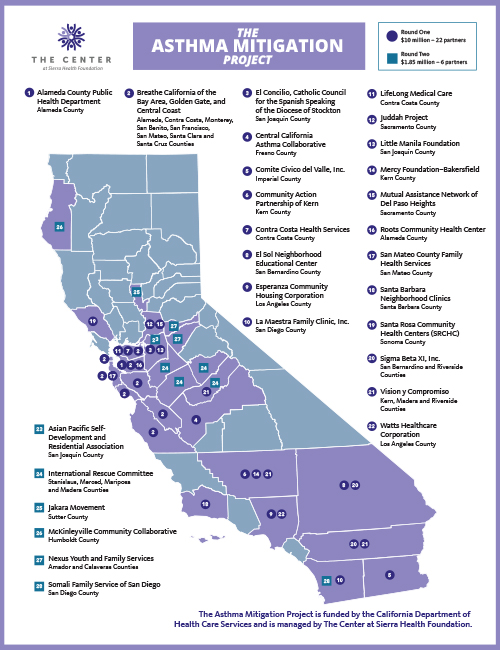Program Overview
The Asthma Mitigation Project awarded close to $12 million dollars to twenty-eight funded partners across the State of California. The project aimed to address asthma disparities in underserved communities and communities of color by providing culturally and linguistically responsive asthma home visiting services. AMP was administered by The Center at Sierra Health Foundation, with funding from the California Department of Health Care Services (DHCS).
Final Evaluation Report Summary
August 2020 – May 2023
About the Evaluation
The Center contracted with Harder+Company Community Research (Harder+Company) to conduct a three-year evaluation of AMP. The evaluation utilized a mixed-methods approach, combining both quantitative and qualitative data to assess program reach, services and outcomes. The primary focus was on improving program implementation and evaluating changes in short- and intermediate-term asthma outcomes among participants. Harder+Company engaged partners through three learning sessions, gathering feedback and fostering collective knowledge among them.
Evaluation Findings
This final report, which builds on AMP Year 1 and Year 2 evaluation reports, summarizes AMP’s implementation and describes how outcomes were met. Key findings include:
- Funded partners achieved short- and intermediate-term outcomes, such as increased asthma knowledge, improved self-management skills, better medication adherence and reduced asthma triggers in home environments.
- Program success was attributed to factors like culturally responsive staff, adequate training, flexibility in program adaptation and strategic partnerships with community-based organizations, public agencies, health plans and medical providers.
- Challenges were identified in program implementation (staffing, funding, partnerships and sustainability) and systemic inequities (housing, environmental triggers and limited healthcare access).
View the final report in English and Spanish:
View the Final Evaluation Report (.pdf)
Ver el Informe de Evaluación Final (.pdf)
View the Final Report Executive Summary (.pdf)
The Asthma Mitigation Project Final Evaluation Report
Lessons for Future Home Visiting Programs
As public and private funders continue to invest in this work, this report offers valuable insights to consider for future efforts focused on asthma mitigation and home visiting programs:
- Design programs that have comprehensive asthma education, provide mitigation supplies and resources and offer culturally and linguistically responsive services.
- Fund technical assistance to support organizations’ administrative, organizational and service delivery needs. Programs thrived with the technical support that helped adjust and adapt their models. It was also crucial to the success of newer organizations.
- Support a diverse range of agency types, including small and large organizations, government and community-based organizations (CBOs) and health and social service providers. This approach recognizes the unique needs of the community and ensures that a variety of organizational structures are available to address their needs.
Year 2 Evaluation Report
The Asthma Mitigation Project Year 2 Evaluation Report (.pdf) builds on findings from the project’s first year to offer new insights into implementation. Harder+Company Community Research’s Year 2 evaluation highlights the experience of funded partners and participants. The report also includes considerations for The Center and the California Department of Health Care Services to strengthen program delivery as well as inform the design and implementation of future asthma home visiting and asthma preventive services initiatives.
Year 1 Evaluation Report
Based on the Asthma Mitigation Project Year 1 Evaluation Report (.pdf) from external evaluation consultants at Harder+Company Community Research, the Asthma Mitigation Project was successful in creating a statewide network of asthma service providers to reach families who are members of Medi-Cal or do not have health insurance. The report found that The Center had facilitated partnerships and skills development that helped project partners reach and serve their clients.


